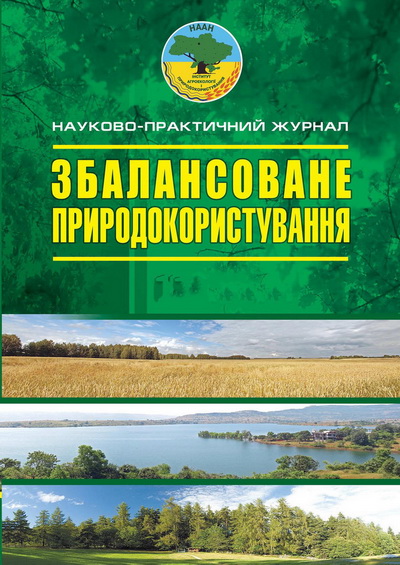SUSTAINABLE TOURISM DEVELOPED AREAS IN THE ENVIRONMENTAL SYSTEM OF RECREATION AREAS
DOI:
https://doi.org/10.33730/2310-4678.3.2018.190363Keywords:
balanced development, tourism, destination, criteria, recreational areasAbstract
The article is devoted to the research of problems and substantiation of directions of balanced development.
of tourism for destinations. It is determined that there are still criteria for balanced tourism development for
destinations were not properly integrated into the national recreational management system.
we are territories. This is largely due to the lack of scientific and methodological support for them
implementation in management practice. As the global criteria for balanced tourism for
of Destinations (GSTC-D) was developed on the basis of already recognized approaches and methods, as well as
best practices, the recommended list of criteria for destinations is up-to-date
to perform tasks in the conditions of the domestic recreational industry. Topicality of application
GSTC-D is about the need for greening tourist and recreational activities. However, if
to draw attention to the substantive basis of the global criteria for balanced tourism,
it becomes apparent that they reflect the essence of the target and implementation parameters of the
it's about solving problems inherent in a particular destination.
In the context of highlighting global criteria for balanced tourism as a benchmark
in domestic conditions it is suggested to rely on the methodology of strategic goals formation
development using Maslow's hierarchy of needs. This approach makes it possible to identify
needs of key participants in relations in the field of tourism and recreational activities (government, local
population, subjects of tourist and recreational activity, tourists) in order to choose priorities
and measures for their implementation in the system of management of recreational areas. For the sake of reconciliation,
it is advisable to use lax interests and resolve many tourism issues
global criteria for balanced tourism development in the management and strategic system
planning of tourist and recreational activities at the state level.
Issue
Section
License
- The authors reserve the right to authorship their work and pass the journal the right to publish this work under a Creative Commons Attribution License license, which allows other persons to freely distribute the published work with the obligatory The authors of the original work and the first publication of this magazine.
- The authors have the right to make independent additional agreements on the nonexclusive dissemination of the work in the form in which it was published by this magazine (for example, to post work in the company's electronic storage or to publish as a monograph) , subject to the first publication of the link to this journal.
- Journal policy allows and encourages the placement of authors on the Internet (for example, in the repositories of institutions or on personal websites) manuscript work as to the presentation of this manuscript to the editorial board and during its editorial processing, as it contributes to The productive scientific discussion and positively affects the efficiency and dynamics of citation published work (see The Effect of Open Access).


